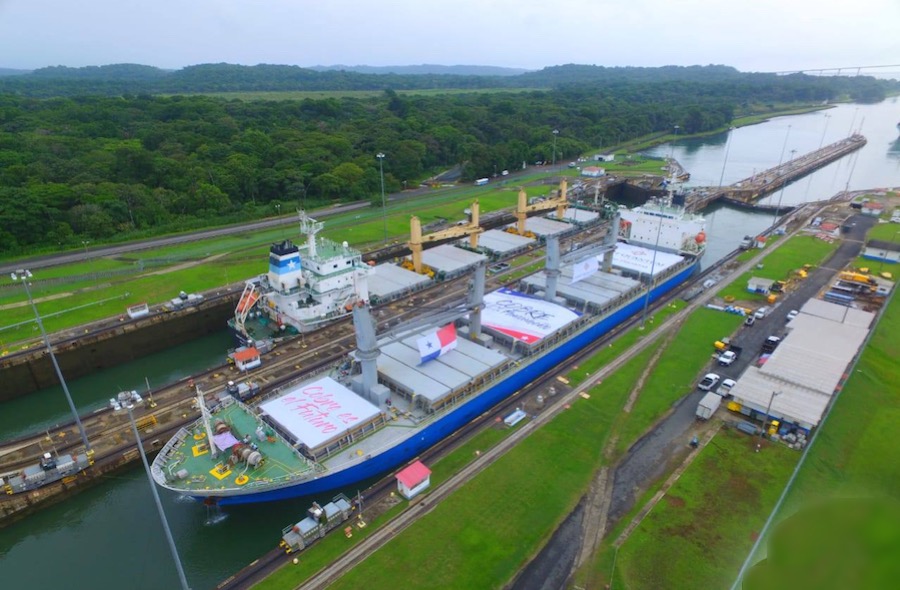Panama electoral court says it can’t hold a mine referendum

Panama’s electoral court said it can’t organize a referendum over a flagship copper mine owned by First Quantum Minerals Ltd., as requested by President Laurentino Cortizo on Sunday, because that would require congress to first pass a law.
“At this moment, there are no conditions to organize the intended popular consultation,” the electoral authority said in a statement Monday, also citing logistics and other legal reasons that prevent the organization of a referendum.
The government on Monday afternoon said it planned to introduce a bill to congress on the referendum.
In its statement, the authority highlighted that preparing the referendum would imply an additional effort to organizing the May 5 general election, when the country will elect its president and legislators.
Panama’s dollar bonds pared losses, with notes due in 2036 slumping 1.4 cents to 95.7 cents on the dollar after trading lower early in the day, according to indicative pricing compiled by Bloomberg. The debt was the worst performer in emerging markets Monday.
First Quantum shares closed 28% lower, the biggest drop in 26 years, a day after Cortizo said that a national vote on the mine will be held Dec. 17 in an effort to quell mass civil unrest over the project.
The call for a referendum cast into doubt the future of one of the world’s biggest and newest copper mines. Cobre Panama has become the center of political debate as the future supply of copper has become a hot topic worldwide.
The electoral court’s statement put in question whether there will be a referendum. That prompted Roger Tejada, a high-ranking official, to prepare legislation that would allow the referendum to take place on December 17, according to a post by the government on X.
The mining contract was going to have a major impact on fiscal accounts, producing the equivalent of 0.9% of GDP in revenues for the government. Without those funds, Panama will likely breach its deficit ceiling of 3% of GDP, said Ramiro Blazquez, head of research and strategy at BancTrust & Co. in Buenos Aires.
(By Michael McDonald)
{{ commodity.name }}
{{ post.title }}
{{ post.date }}




Comments
mike Natera
i’m extremely proud of the incredible show of support by all panamanian citizens, on this mining crisis which can affect the of the future of theCountry in a negative way for generations to come.